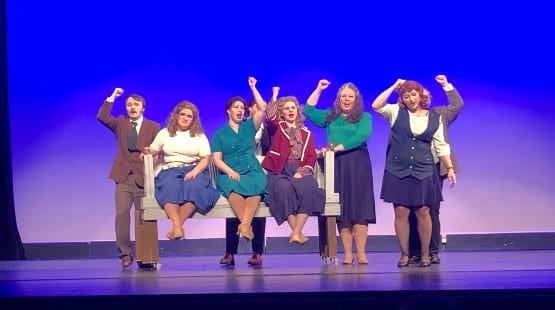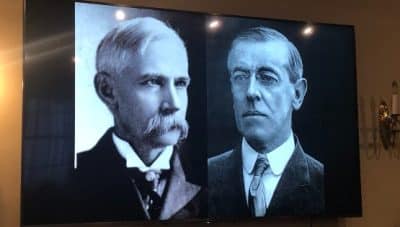
“Knowing what I do now makes me appreciate what children my age went through and the sacrifices they made,” said Gully. “It makes me want to make changes in the world today.”
“The journey showed me so much more of the civil rights movement and that time period that you cannot help but want to learn more,” said Karim.
Sha Jackson, associate director of “Coming to the Table” at Eastern Mennonite University (EMU), says that empowering students was what this journey was designed to accomplish.
“The students learned the history of the civil rights movement by being at the spots where it happened,” said Jackson. “The journey was designed to encourage them to think at a deeper level and empower them to seek changes in today’s climate.”
The group consisted of 18 youth of European-American, African-American, Asian-American and Mexican-American descent, ages 16-18, from Philadelphia, Miss. The students began in Philadelphia on July 11, 2011, then stopped in Jackson, Miss., Memphis, Tenn., Birmingham, Montgomery and Selma, Ala., before returning to Philadelphia on July 16. Students visited historical landmarks as they retraced the journeys of African-American and European-American civil rights pioneers. A half-hour documentary about the journey is scheduled to be aired this fall, said Jackson.
The event was planned by “Coming to the Table,” a program in EMU’s Center for Justice and Peacebuilding.
Experiencing the journey
Both Gully and Karim said the journey gave clarity to the Civil Rights movement and the historical significance of each stop.
“Walking across the Edmund Pettus Bridge, singing like they did when they marched toward Montgomery made me feel like I was back in those times,” said Karim.
“Knowing kids my age walked across this bridge and the impact it had on the civil rights movement made me realize how lucky I am,” said Gully.
The home of civil rights martyr Medger Evers, Mississippi’s first field secretary for the National Association for the Advancement of Colored People (NAACP), also resonated with the students.
“It was fascinating the amount of security measures Evers went through,” said Gully. “He taught his kids what to do if something were to happen and safe places to go.”
Winding through Alabama the students were able to visit a block of Birmingham known as the Civil Rights District. The district encompasses the 16th Street Baptist Church, Kelly Ingram Park and the Birmingham Civil Rights Institute.
“It’s hard to take in everything in Birmingham,” said Jackson. “The students wrote down their reflections in Kelly Ingram Park, the same park that children were arrested in during the ‘Children’s March’.”
Stops on the trip, called “Writing a New History Civil Rights Youth Pilgrimage,” also included the Dexter Avenue Baptist Church, the Rosa Parks Museum and Lorraine Motel, where King was assassinated in 1968 as he stood on a balcony outside his motel room.
“I heard constant feedback from the students on how this trip gave them more insight and knowledge than any class they had been in,” said Jackson. “They told me they wanted to do something about the education system and empower other students to do the same.”
Coming to the Table
“Coming to the Table” is inspired by the call of King during his historic address at the March on Washington in 1963. He prayed that “the sons and daughters of formerly enslaved people and those who enslaved them will be able to sit down together at the table of brotherhood.”
Funded in part by the Kellogg Foundation and the Fetzer Institute, the program’s mission is to “foster racially harmonious relationships and community by facing a shared history and building a bridge to a brighter history for the next generation.”
More information is available at www.comingtothetable.org. Images of the journey are courtesy Karen Elliott Greisdorf.
Further information or comments on the “Writing a New History Civil Rights Youth Pilgrimage,” can be addressed to Jackson, 540-432-4491; [email protected].










